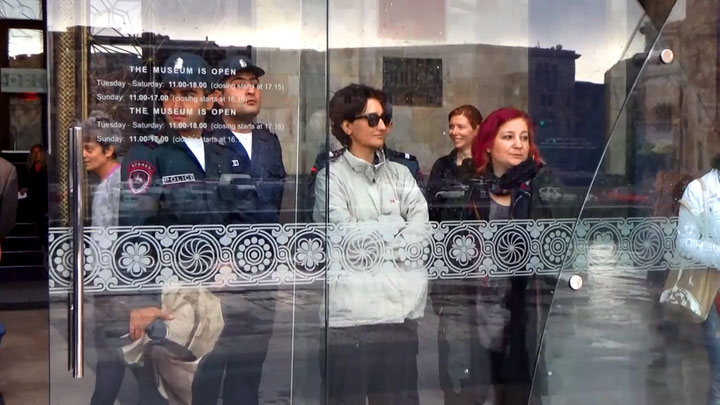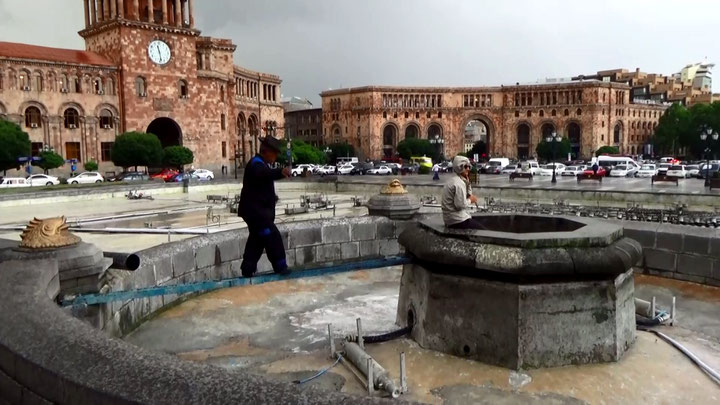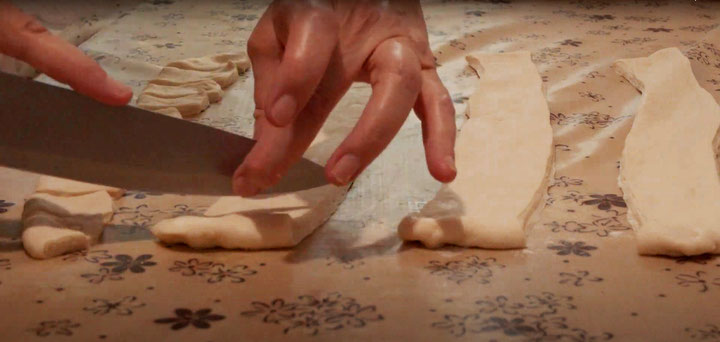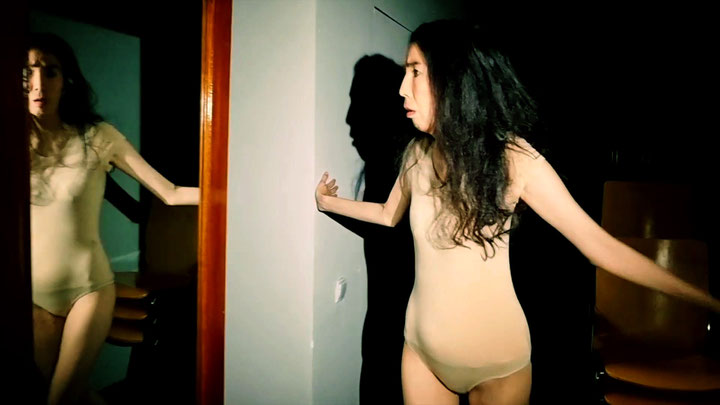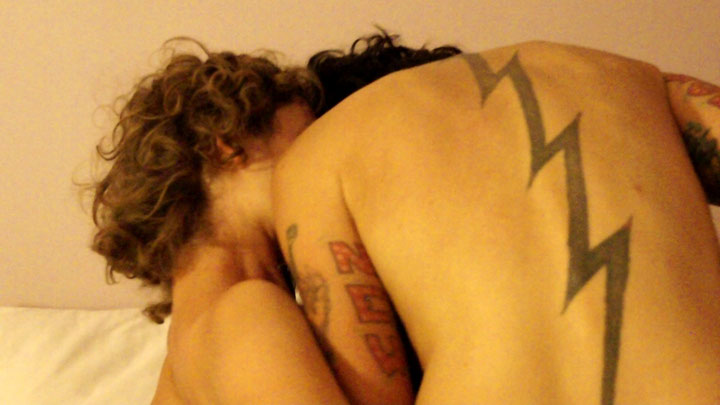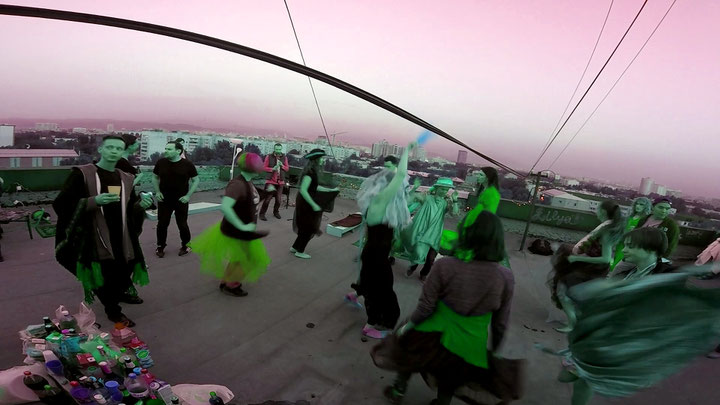Issue 3/2023 - Queer Postsocialist
Postsocialist Timeslips
A reflection on eponymous compilation of six video artworks from Central Asia and Caucasus at the intersection of postsocialist, queer-feminist and decolonial narratives and imaginaries.
Kreolex zentre is the name of the imaginary cultural center from Almaty, Kazakhstan, with its two employees, us. Every cultural center represents a community, and since ours has been an imaginary one, so is our community – a virtual multitude of the non-white, non-straight, inter-mixed and poly-ethnic diasporic outcasts, misfits and mongrels from the former colonies of the evil Russian empire. Most of the time we didn’t feel real since for the larger society there were neither queers nor kreolex1 in Central Asia. In order to become real, we needed a kind of shared story of us – as a virtual community – becoming ourselves. What trajectory led to the point of the present, where we claim to be postsocialist, creolized and queer?
When we received an invitation from D’Est platform to curate a video program,2 we decided that this story of the non-existent kreolex people can be told in the form of a video Chapter – a compilation of six video works, with half of it coming from our own country and the other half from the other Southern “national republics”.
Postsocialist queer experiences are multiple and wouldn’t fit into a video program of any size. Nevertheless, we wanted to represent the diversity of Central Asian queers, or at least mark a few milestones that must have been important for the becoming of the virtual kreolex community. The program opens with the work by Tajik-Kazakh artist Nazira Karimi. Her film Izdeu (2022), comprised of the whispering voiceover and slow static frames of the artist’s homey spaces, sets historical context for the present, in which large societal cataclysms get intertwined with personal biographies of our extended family members. The next work is a video by Bakhyt Bubikanova, a Kazakh artist who passed away at the age of 37, after a battle with illness, two weeks before the program was premiered in June 2023. Her video Moldakul (2022), mocking some tropes of film noir, is a tribute to her teacher and beloved friend Moldakul Narymbetov (1948–2012), a renowned Kazakh artist whose work and public image has been very important for the contemporary Central Asian art scene. The next episode in Chapter is an autobiographical work My Mother’s Wound (2020) by Gulzat Matisakova, a filmmaker from Kyrgyzstan. Depicting a situation of transgenerational trauma apparently common among women raised in traditional patriarchal families, it is made in a direct confessional manner and includes author’s drawings made during therapy sessions. Work number four by Armenian queer feminist author Lucine Talalyan is titled Post-DIY (2015). Using non-narrative, non-representational approach and inheriting traditions of avant-garde cinema, the film is made in response to the act of anti-queer violence – a bombing attack on the queer bar in Yerevan called DIY. Another video from Armenia, Fountain Action (2016) is, on the contrary, a straightforward TV-style reportage of an absurdist public gesture that turned out to be a social experiment: what happens when a young woman climbs into a bowl of a non-working fountain and refuses to leave at a command from the authorities? The action was made by a group of queer feminist activists in response to the incident that took place a couple of weeks earlier when a woman sitting in the same fountain was detained by the police and forcibly committed to a psychiatric hospital. The group reenacted the situation and documented the debates between the police and the activists. The last video in the Chapter, Perlshower Ceremonial Event (2017) is an amateur-style improvisational video documentation of a clandestine queer ceremony shot with the wide-angle action camera. The ceremony took place in Almaty in the impromptu art squat on the rooftop of a high-rise residential building, and was a collaboration between Kazakh artist Katipa Apai and Kreolex zentre.
Told in such a way, our story strives to embrace the diversity of post-soviet non-white queer experiences, leading the viewer through the episodes of despair and therapy, shock and sexual intercourse, acts of civil disobedience and celebrations. The first three films are attempts to explore, evoke or change the past. The fourth film, Post-DIY, starts like an intrusion of the present-day reality (a bombing attack), but towards the middle falls out of the linear time, becoming a queer utopia due to its dream-like love scene.
The last two films – Fountain Action and Pearlshower Ceremonial Event – are documentations of real-life events: two very different queer actions taking place in Yerevan and Almaty. One is a public gesture performed by a lone (although supported by her activist-friends) woman, the other is a semi-public action performed by many. The former addresses the entire state apparatus of repression in the form of police and psychiatric services, being an open question to society about the norms imposed on people. The latter has no specific addressee other than the participants themselves, being an attempt to imagine a queer utopia of some sort. We tend to believe that these two different approaches complement each other, thus representing the two major aspects of queer feminist struggles in post-soviet spaces. On one hand, we can claim our right to be visible and to use the main city squares as we deem fit. On the other, we are still hidden, not completely real, fictitious, and so are free to stage our small temporary autonomous zones where no one can see us – except, perhaps, the stars high in the sky.
1 The word ‘kreolex’ was contrived by us to designate the local version of ‘creoles’, ethnically mixed non-heteronormative communities from Central Asia, following the example of ‘latinx’.
2 The program was commissioned by D’Est and premiered in Schloss Biesdorf, Berlin, in June 2023. https://www.d-est.com/category/cycle-2/postsocialist-time-slips/


